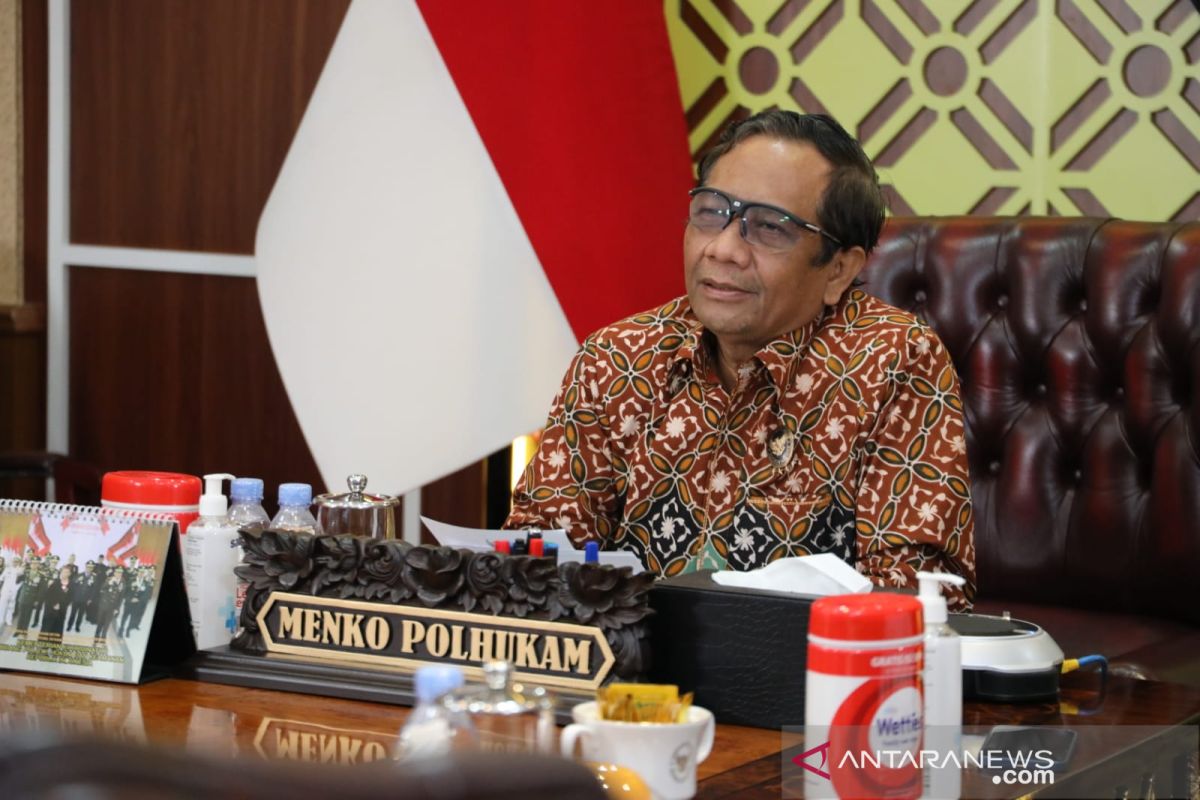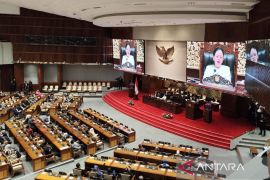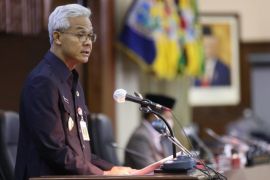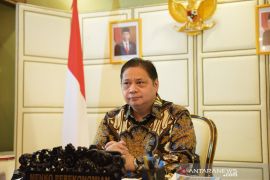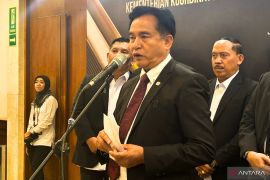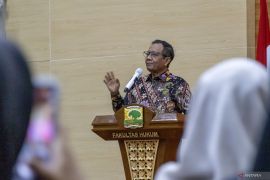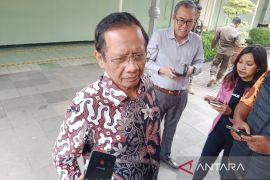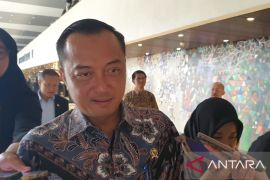Officially, the government cannot say it agrees or does not agree on the amendment. In this respect, the government will only offer its political sphere. Please convey (the aspirations) to MPR/DPR. We will guard and secure them. That is the governmenJakarta (ANTARA) - The People’s Consultative Assembly (MPR) rather than the government has the authority to amend the 1945 Constitution, according to Coordinating Minister for Political, Legal and Security Affairs Mahfud MD.
The government is not in a position to agree or disagree regarding the amendment to the 1945 Constitution, as it has no authority to do it, Mahfud noted in a press statement released on Thursday.
“Officially, the government cannot say it agrees or does not agree on the amendment. In this respect, the government will only offer its political sphere. Please convey (the aspirations) to MPR/DPR. We will guard and secure them. That is the government’s task. Whether or not to change the substance is the political decision of the authorized institution,” he affirmed.
Related news: Defer constitutional amendment as it is not priority: legislator
Amendment to the Constitution comes under the authority of the MPR, which represents the entire nation and comprises members of the House of Representatives (DPR), Regional Representative Council (DPD), political parties, and so on, he noted in a keynote address during a discussion on the 1945 Constitution organized by Integrity Lawfirm.
“Of course, the public’s aspirations will be channeled through the institutions provided by the constitution,” he noted.
The former chief of the Constitutional Court (MK) stressed that the government will not intervene in the planned amendment to the Constitution.
Related news: COVID-19 pandemic could not justify general elections delay: Expert
“The government does not state it agrees or disagrees because the amendment does not need a seal of approval from the government,” he emphasized.
However, the state administrative law professor stressed that the Constitution is the resultant political product not found in the country’s history all the time.
In fact, almost none of the constitutional products are considered good, he noted.
“The constitution is a resultant product or an agreement based on social, political, economic, and cultural situations at the time it was enacted. Maybe because social, political, economic, and cultural situations have changed, (some academics) deem it necessary to question it. I think this is not the government’s authority. However, academics can discuss its good and bad aspects,” he affirmed.
Related news: What's happening in Afghanistan right now?
Related news: BRI pushes agriculture sector to flourish during pandemic
Translator: Syaiful Hakim, Suharto
Editor: Fardah Assegaf
Copyright © ANTARA 2021
